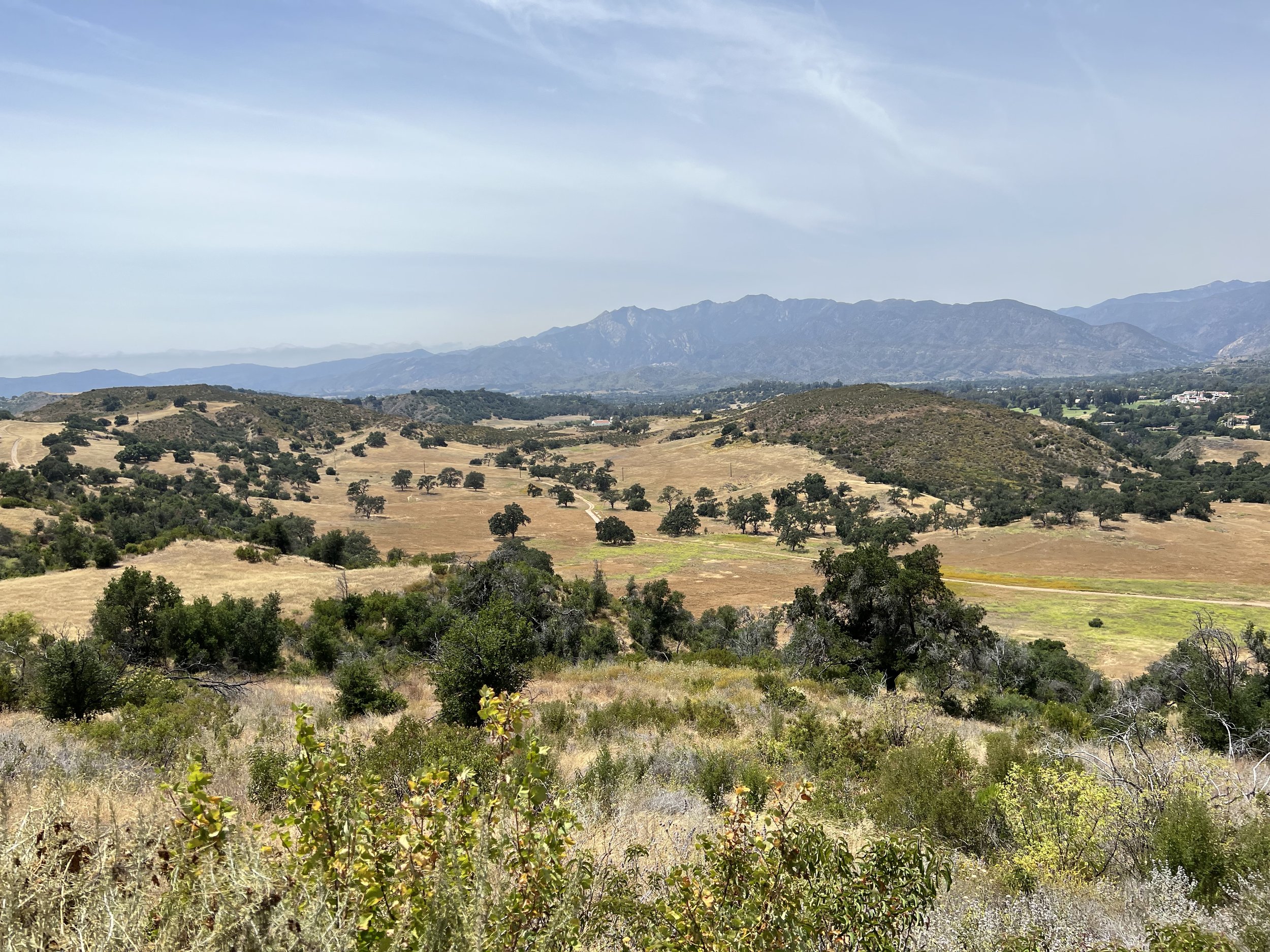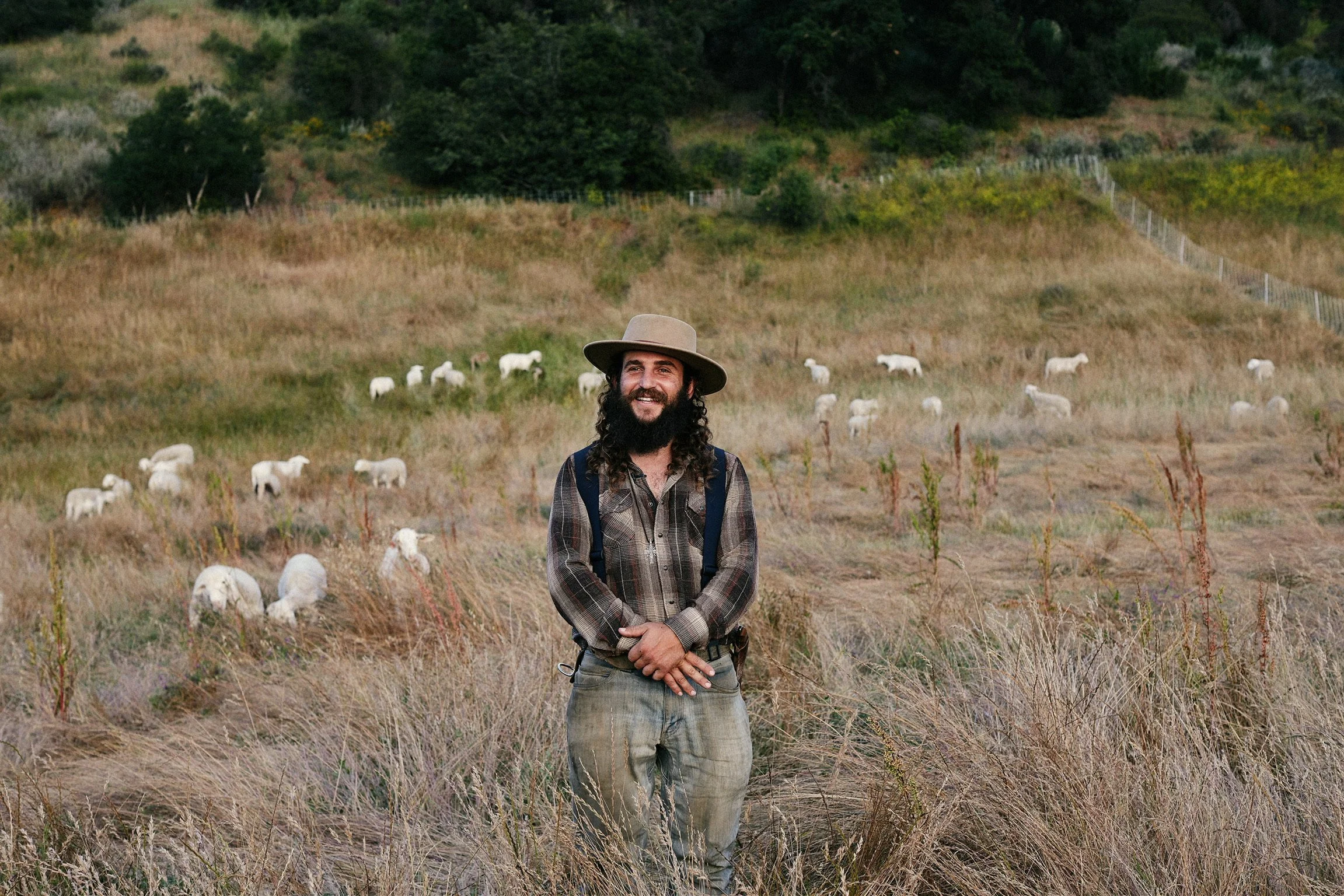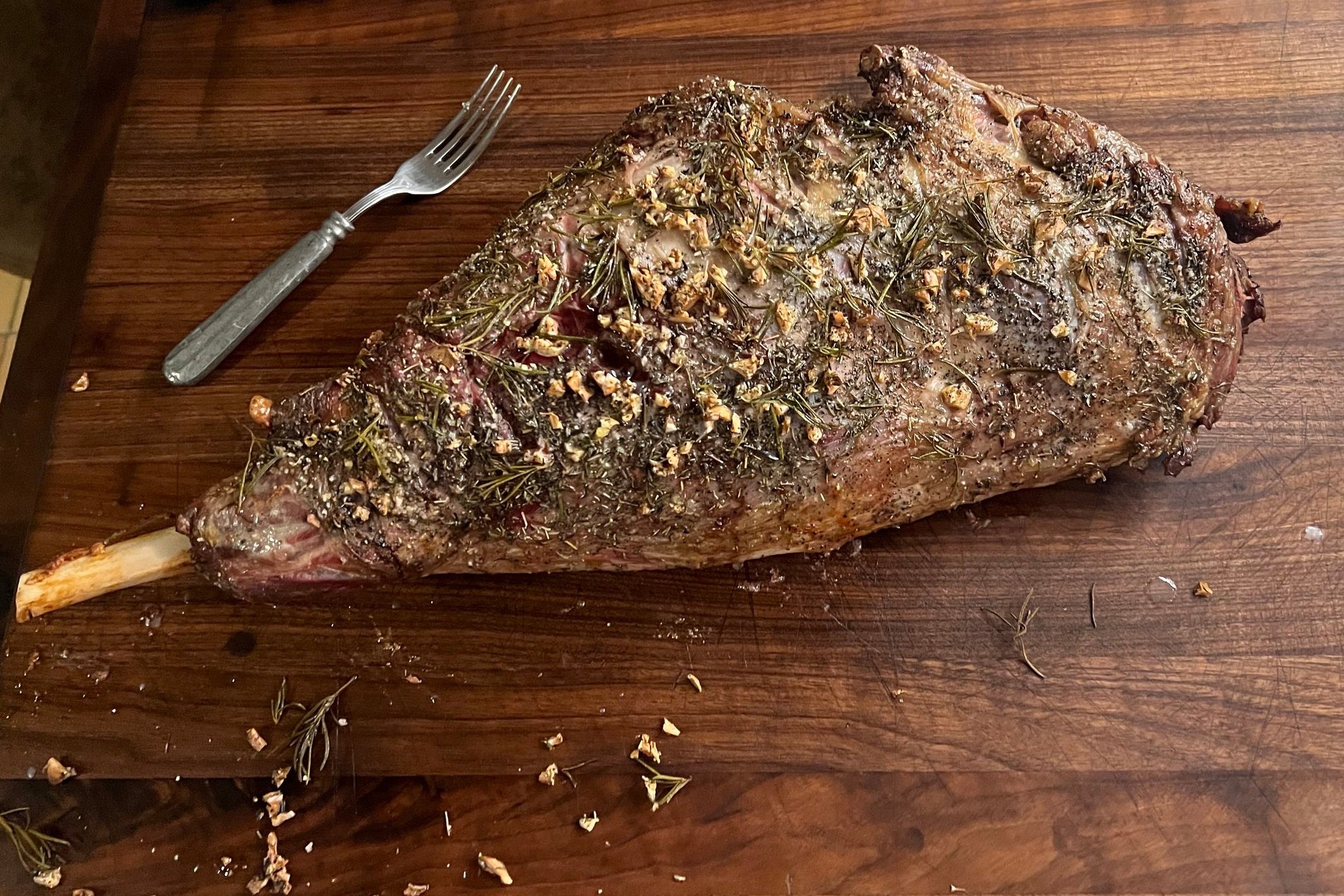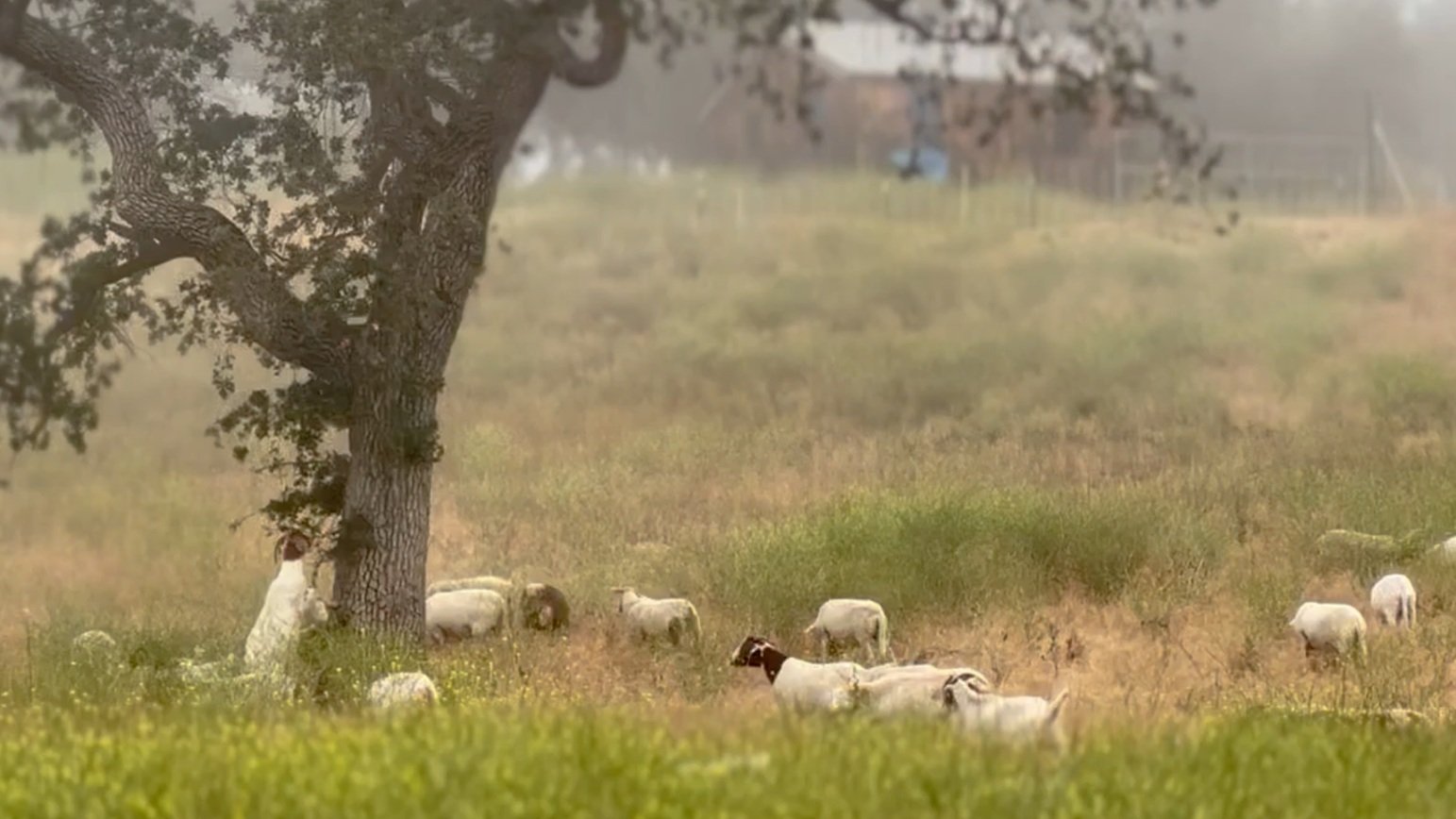
About Us
By prioritizing holistic land stewardship, diverse forage, and whole-animal utilization, we’re creating a food system that benefits the vitality of our landscapes, the health of our communities and communion at our dinner tables. May we all rejoice at the reunion of hearth and husbandry

Meet Dylan
Photo Credit: Ben Bishop.
Raised in Southern California, Dylan Boeken is a shepherd, butcher, and advocate for regenerative agriculture. Inspired by holistic land management, he apprenticed under Larry Santoyo, received accreditation from the Savory Institute, and honed his livestock skills at Five Bar Beef and Shepherdess Land & Livestock.
At Boek House Hearth & Husbandry, Dylan’s mission is to restore the connection between the land, the animals, and the food we eat. His livestock graze beyond traditional "grass-fed" standards, benefiting from a diverse diet that enhances both the meat’s quality and the landscape’s vitality.

The Boek House Difference
Our nutrient-dense, flavor-filled meat reflects the landscape it comes from—grazing on everything from oats and thistles to elderberry and coast live oak.
Regeneration Through Grazing
By using holistic grazing practices, we revitalize the land, promote biodiversity, and sequester carbon, ensuring a healthier ecosystem for generations to come.
Locally Sourced, Community Supported
We exist because of a community that values ethical, regenerative, and locally raised food. By knowing where your meat comes from, you’re supporting the rebuilding of resilient, diverse and traditional food pathways that ensure your communities access to nutrition and health
Know Your Shepherd
Labels don’t tell the full story. If you see Dylan around, say hi! Better yet, visit Boek House to see firsthand how your food is raised.

The Regenerative Way
We embrace holistic, whole-animal butchery to minimize waste and preserve the culinary traditions lost to industrialized food systems. By offering whole, half, and primal cuts, we’re helping bring people back to the table—to cook, share, and connect.
Industrial agriculture is depleting land at an alarming rate, relying on destructive practices like discing, pesticides, and GMOs. Regenerative agriculture is the alternative.
Through managed grazing, we improve soil health, reduce risk of fire, increase biodiversity, and contribute to a more stable and sustainable food system. As large scale food enterprises continue to consolidate